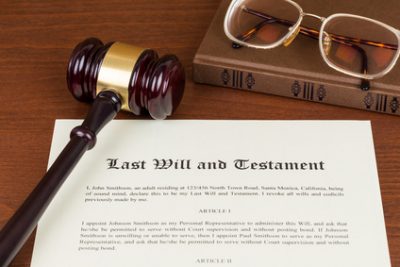 Preparing an estate plan thoroughly and properly is a secure pathway to avoiding being involved in Probate Court. Otherwise, it could be necessary to ask the Probate Court for permission to handle someone’s affairs, perhaps a parent or sibling who is incapacitated.
Preparing an estate plan thoroughly and properly is a secure pathway to avoiding being involved in Probate Court. Otherwise, it could be necessary to ask the Probate Court for permission to handle someone’s affairs, perhaps a parent or sibling who is incapacitated.
Our firm handles the various Lifetime Probate matters that can occur. This includes Involuntary Commitments, Guardianships, or Conservatorships – appointments or removals. If you’re not now in such a circumstance, without a Medical Power of Attorney (which can be referred to as a Patient Advocate Designation or Durable Power of Attorney for Healthcare), a HIPPA Authorization, a Durable Financial Power of Attorney and a Living Trust, you may be at some point in the future.
While we advise you to create an estate plan that protects you from this possibility, the following will help you understand what you may be facing if you find yourself in Probate Court.
Guardianship
A Guardianship is when the court appoints a Guardian on behalf of a “Ward” – a minor or an adult who is incapacitated and needs ongoing supervision, care, and someone to make decisions for them. Before this proceeds, there must be “clear and convincing evidence” that the Ward is incapacitated and does indeed need ongoing supervision and care.
This can be a complicated and costly procedure, and usually involves two attorneys. One represents the person seeking the Guardianship, the other is court appointed and is responsible for investigating what is being alleged. The Ward is typically responsible for the costs of both attorneys.
Becoming an appointed Guardian requires medical proof and the preparation, filing, and serving of voluminous documents. All of this must be conducted efficiently and presented at multiple court hearings.
This can be avoided by executing a Medical Power of Attorney and a HIPPA Authorization before a person becomes incapacitated.
Conservatorship and Involuntary Commitments
Another area in which the court needs “clear and convincing evidence” is if a person is deemed unable to manage his or her business affairs or property due to specific conditions, such as incapacity or disappearance. This is related to the person’s assets being improperly managed to the point that they are diminished. In these cases, the court may appoint someone to manage the assets for the person. This person is called a Conservator.
Just as in a Guardianship, the process of establishing and maintaining a Conservatorship is time consuming, complex, and expensive and usually involves two attorneys. The petitioner is represented by one of the attorneys; the other – the “Guardian Ad Litem” is court appointed and is responsible for investigating the petitioner’s allegations. The person seeking conservatorship usually bears the cost of both attorneys. There can also be requisite ongoing accountings of the Ward’s income, assets, and expenses which can incur annual expenses.
In order to be appointed as a Conservator, medical proofs must be provided; many documents must be filed, a surety bond must be obtained and attendance and preparation of proofs at court hearings is required. All of this can be avoided by creating a Living Trust, executing a HIPPA Authorization and a Durable Financial Power of Attorney Power in advance of a person becoming incapacitated.
Involuntary Commitments
Associated with Mental Health, a “person requiring treatment” with mental illness who is unable or unwilling to get the needed treatment and cannot take of him or herself can be involuntarily committed by the Probate Court. Diagnosis of conditions such as epilepsy or dementia – in and of itself- is not a sufficient basis; the other conditions must also exist.
To avoid Lifetime Probate Court matters, advance preparation as part of an estate plan is highly recommended.

